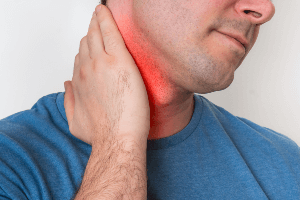 The force of impact from a car accident can have a serious impact on a person’s muscles. Not only can the crash cause immediate injuries, but it can also result in secondary or long-term muscular complications.
The force of impact from a car accident can have a serious impact on a person’s muscles. Not only can the crash cause immediate injuries, but it can also result in secondary or long-term muscular complications.
Recovering compensation for these types of injuries after a crash may be possible. However, it may be in your best interest to discuss your legal options with our South Bend auto accident lawyers. The consultation is free and there are no upfront fees for our services.
Below, we discuss how the force of an impact can affect your muscles and what injuries may develop as a result.
How the Force of Impact From a Crash Affects Muscles
During a car crash, the force of impact can have a significant effect on muscles throughout the body.
One of the primary ways that the force of impact affects muscles is through stretching. When a car comes to an abrupt stop or collides with another object, the body may be propelled forward or jerked in different directions. This sudden movement can cause the muscles to stretch beyond their normal range of motion.
In addition to stretching, the force of impact can cause muscles to contract forcefully. This occurs as the body instinctively tries to protect itself during a crash. The rapid contraction of muscles can happen in an attempt to brace against the impact or to stabilize the body.
Severe trauma can also be inflicted on the muscles during a car crash. This trauma can result from direct impact with hard surfaces within the vehicle or external objects, such as the steering wheel, dashboard or other vehicles involved in the collision.
The specific muscle injuries that result from the impact depend on several factors, including the type of crash, the direction and intensity of the forces involved and the position of the body at the time of the collision.
What Are Some Common Muscular Injuries in a Crash?
Car accidents can result in various types of muscular injuries, with some being more common than others.
Whiplash
Whiplash is one of the most well-known muscular injuries associated with car accidents. It primarily affects the neck and upper back muscles. Whiplash occurs when the head is suddenly jerked forward and backward, causing strain and damage to the muscles, ligaments and soft tissues in the neck.
Symptoms of whiplash include the following:
- Neck pain
- Stiffness
- Headaches
- Limited range of motion
Sprains and Strains
These injuries commonly occur in car accidents when muscles and tendons are stretched or torn due to sudden movements or impact. A sprain refers to the stretching or tearing of a ligament, while a strain involves the stretching or tearing of a muscle or tendon.
These injuries can cause the following:
- Pain
- Swelling
- Muscle spasms
- Limited mobility
The severity of sprains and strains can vary, ranging from mild to severe, depending on the extent of the damage.
Contusions
When the body collides with hard surfaces or experiences external forces, it can lead to bleeding within the muscles, resulting in bruising.
Symptoms of contusions may include the following:
- Tenderness
- Discoloration
- Swelling at the site of the injury
While bruises generally heal on their own over time, severe contusions may require medical attention.
Muscle Tears and Ruptures
In more severe car accidents, the force of impact can cause muscle tears or ruptures. These injuries involve the complete or partial tearing of muscle fibers. Muscle tears often occur when the muscles are subjected to excessive force or stretched beyond their limits.
Symptoms may include the following:
- Severe pain
- Swelling
- Muscle weakness
- Inability to use the affected muscle
Muscle tears and ruptures require immediate medical attention and may need surgical intervention.
What Are Secondary Muscular Effects After a Crash?
In the aftermath of a car crash, the body’s response to muscular injuries can result in a range of secondary effects. These effects may not be immediately felt. However, they can have a significant impact on the overall function and well-being of the muscular system.
After a car accident, the body may experience spasms in the injured muscles or surrounding areas. These spasms can be painful and cause further discomfort and limited mobility. Muscle spasms are the body’s way of stabilizing the injured area, but they can lead to muscle fatigue, stiffness and ongoing pain if left untreated.
Additionally, the affected muscles may become inflamed. This is the body’s natural response to tissue damage. Inflammation is characterized by redness and swelling in the affected area. While inflammation is a crucial part of the healing process, excessive or prolonged inflammation can lead to secondary complications. Inflamed muscles can become stiff, painful and susceptible to further injury.
Lastly, in an attempt to protect injured areas, the body may rely on other muscles to compensate for the compromised function of injured muscles. This compensation can lead to imbalances in muscle strength, flexibility and coordination. Over time, these compensatory patterns can put excessive strain on certain muscles while underutilizing others. These muscle imbalances can lead to chronic pain, altered movement and increased risk of further injuries.
What Are the Long-Term Muscular Effects of a Crash?
Muscular injuries, especially those left untreated, can significantly impact a person’s well-being and daily life in the long term.
One of the most prevalent ways these types of injuries can affect a person is through chronic pain. This includes pain from the initial injury to any pain that results from secondary muscular complications.
Muscular injuries can develop in scar tissue. When this happens, it can lead to muscle stiffness and reduced range of motion. In the long term, this can seriously impact a person’s ability to move around freely and independently.
When muscles are injured and in a state of recovery, they are not being used. This reduced muscle activity can lead to muscular atrophy, which is the wasting or loss of muscle tissue caused by reduced activity or impaired function. Muscle weakness may result in nerve damage, which can in turn lead to poor strength and endurance to perform basic activities, like standing or walking for an extended period.
Need Help Seeking Compensation? Call Us Today
To recover from muscular injuries after a crash, accident victims may need to undergo intensive physical therapy and follow-up appointments with doctors and specialists. This medical treatment can get expensive, so it is important to pursue compensation for these costs from the party who caused your injuries.
Working with our attorneys may be in your best interest. We have extensive experience representing injury victims and are prepared to discuss your potential legal options.
Call (574) 444-0741 to schedule a free consultation.













